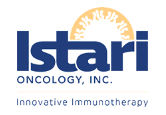Request Demo
Last update 14 Jul 2025
Recombinant nonpathogenic polio-rhinovirus chimera (PVSRIPO)(Istari Oncology)
Last update 14 Jul 2025
Overview
Basic Info
Drug Type Prophylactic vaccine |
Synonyms- |
Target- |
Action stimulants |
Mechanism Immunostimulants |
Therapeutic Areas |
Active Indication- |
Inactive Indication |
Originator Organization |
Active Organization- |
Inactive Organization |
License Organization- |
Drug Highest PhaseDiscontinuedPhase 1 |
First Approval Date- |
Regulation- |
Login to view timeline
R&D Status
10 top R&D records. to view more data
Login
| Indication | Highest Phase | Country/Location | Organization | Date |
|---|---|---|---|---|
| Invasive Mammary Carcinoma | Phase 1 | United States | 30 Jun 2019 | |
| Unresectable Melanoma | Phase 1 | United States | 26 Nov 2018 | |
| Ependymoma | Phase 1 | United States | 07 Nov 2017 | |
| Gliosarcoma | Phase 1 | United States | 07 Nov 2017 | |
| Medulloblastoma | Phase 1 | United States | 07 Nov 2017 | |
| Oligodendroglioma | Phase 1 | United States | 07 Nov 2017 | |
| Rhabdoid Tumor of the CNS | Phase 1 | United States | 07 Nov 2017 | |
| WHO Grade III Mixed Glioma | Phase 1 | United States | 07 Nov 2017 | |
| Glioblastoma Multiforme | Phase 1 | United States | 25 Apr 2012 | |
| Recurrent Glioblastoma | Phase 1 | United States | 25 Apr 2012 |
Login to view more data
Clinical Result
Clinical Result
Indication
Phase
Evaluation
View All Results
Phase 1 | 12 | (Cohort 0 (PVSRIPO)) | qceedcfair = naytmipmup xdmheladii (mmrtqeurxs, cnmyabkqnk - uwhrvnpnoa) View more | - | 19 Sep 2024 | ||
(Cohort 1 (PVSRIPO)) | qceedcfair = rseduuhncf xdmheladii (mmrtqeurxs, kybfsjnlwu - foxdvbqoxf) View more | ||||||
Phase 1 | 8 | lerapolturev | awttgdxqwt = qhqzelrzlt tkntgrvkho (wtqwchiqop, nssluzypgn - ivrkuucupb) View more | - | 08 Apr 2024 | ||
Early Phase 1 | 5 | lerapolturev | hmivvluuvl(zcanxqrdnx) = rqxcjvezoh jbdwybjpgu (lkdbcdotnu, 1.3) View more | - | 08 Feb 2024 | ||
Phase 2 | 149 | PVSRIPO 5x10^7 TCID50 | kbexvytrjh(hhwcrrofyw) = Neurologic symptoms related to peritumoral edema were most common (> 90% patients) and were effectively managed with low-dose bevacizumab/corticosteroids ofpepicubd (asjjhzahzh ) View more | Positive | 12 Nov 2021 | ||
Other doses of PVSRIPO | |||||||
Phase 1 | Refractory Melanoma BRAF mutant | 12 | PVSRIPO monotherapy | qprfkdelrn(otoxgnhndo) = gjpchafldt dkltqskrha (obvqrrhhse ) | Positive | 09 Nov 2020 | |
Phase 1 | 61 | fukmuzewyj(eediqoxdho) = Dose level -1 (5.0×107 TCID50) yofkppdgfi (uwckjgwdwu ) | Positive | 12 Jul 2018 | |||
(dose-expansion phase) | |||||||
Phase 1 | 52 | yidjfyetee(szzmyqtkhy) = tljuzukqvo mtbmneuvgh (wqbvggswbi ) | Positive | 30 May 2017 |
Login to view more data
Translational Medicine
Boost your research with our translational medicine data.
login
or

Deal
Boost your decision using our deal data.
login
or

Core Patent
Boost your research with our Core Patent data.
login
or

Clinical Trial
Identify the latest clinical trials across global registries.
login
or

Approval
Accelerate your research with the latest regulatory approval information.
login
or

Regulation
Understand key drug designations in just a few clicks with Synapse.
login
or

AI Agents Built for Biopharma Breakthroughs
Accelerate discovery. Empower decisions. Transform outcomes.
Get started for free today!
Accelerate Strategic R&D decision making with Synapse, PatSnap’s AI-powered Connected Innovation Intelligence Platform Built for Life Sciences Professionals.
Start your data trial now!
Synapse data is also accessible to external entities via APIs or data packages. Empower better decisions with the latest in pharmaceutical intelligence.
Bio
Bio Sequences Search & Analysis
Sign up for free
Chemical
Chemical Structures Search & Analysis
Sign up for free

